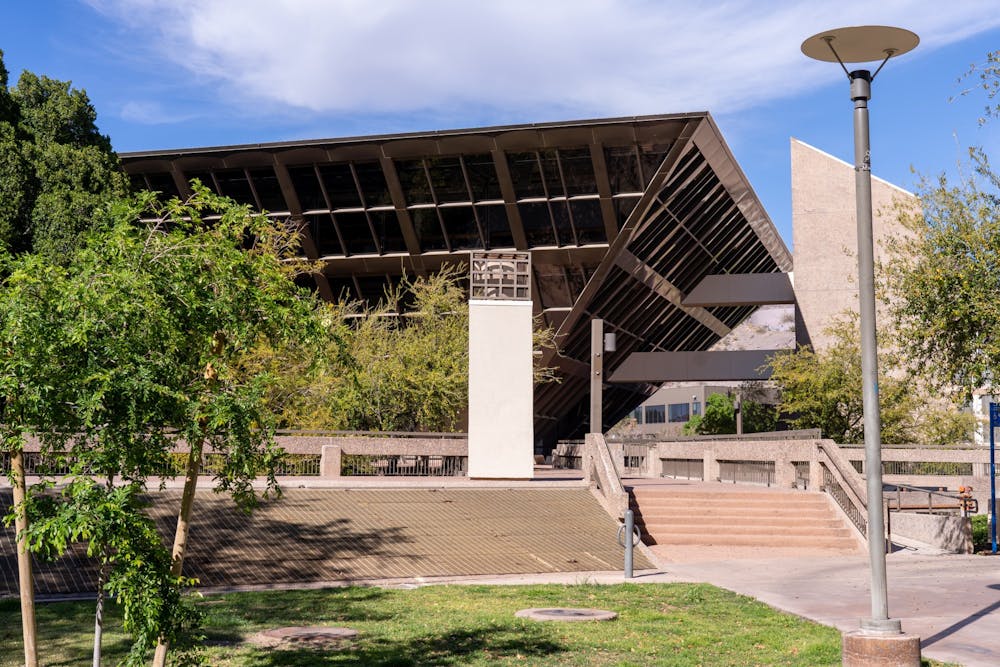The Tempe Historic Preservation Commission is proposing to increase wait times for demolition permits for every property in Tempe over 50 years old.
Tempe's historic preservation officer Zachary Lechner said the proposed changes to the Historic Preservation Ordinance would include classifying all properties over that age as "historically eligible." This would grant the commission power to impose up to a 60-day stay period on demolition permits to those properties so the commission can review their historical value.
Lechner said this would give the commission the time "to determine the potential of historic eligibility of the property" and "to have time to reach out to the property owner and see ... if there might be some other options that could be worked out."
Nolan Williams, co-founder of Tempe Yes In My Backyard, said this proposed change will make it harder to increase housing supply in a city already strapped for resources.
"The grand scheme of it is that they are making it harder to build things in or near areas that have older buildings," Williams said. "For a developer, that means extra legal fees. It's an extra month after which they’ve borrowed money, that they have to pay interest on, that they’re not making money back."
The commission is proposing that they will determine the historic eligibility of a property instead of the previous explicit criteria based on the National Park System and National Historic Landmarks guidelines.
The proposed changes would mean most of Tempe's houses would be automatically designated historically eligible in the next 20 years. According to TownCharts, 67% of Tempe's homes were built before 1989.
"Because so much was built in the 80's and so much was built in the 70's, half of our housing stock is going to have these restrictions put on them," Williams said. "It would take entire neighborhoods built in the 70's and say, 'Anything that is in any of these homes … has to go through this extra process.'"
When a stay time is imposed, no construction or demolition can occur on the property while the commission assesses its historical value.
According to the Historic Preservation Ordinance, plans for demolition can continue if the commission deems the property not historical or if no determination is made within the period. The proposal includes increasing the stay time on historically eligible properties from 30 to 60 days, doubling the commission’s time to review the properties' historical significance.
"Not every building over 50 years of age is historic," Lechner said. "If it has retained historic integrity, then we might consider it potentially historic, and we might, with the property owner’s approval and participation, send it through the process to try and get it registered."
Tempe's deputy community development director, Ryan Levesque, said the committee will not affect Tempe's efforts to build more affordable housing.
"There's always opportunity for change and for redevelopment," Levesque said. "We've been encouraging it in areas … where some of our most significant historic buildings are."
Williams said the proposed guidelines are too broad and cast restrictions on properties that aren't necessarily historic.
"We have entire blocks, huge blocks of neighborhoods where all of the homes were built at exactly the same time and frankly don't have history," Williams said. "Taking entire neighborhoods that were built in the 1950s and saying nothing new can be built here because we want to preserve 600 homes … I think it’s kind of crazy."
Lechner said Tempe can prioritize affordable housing while maintaining the city's historical value.
"Try to think of the city of Tempe without the Hayden Flour Mill, without Hayden House, or without City Hall … it's kind of hard to imagine downtown without it,” Lechner said. “We can do both, and I think we have a commission and I think we have a City Council that is definitely committed to doing that."
Editing by Grey Gartin, Walker Smith and Caera Learmonth.
Reach the reporter at pjhogan2@asu.edu and follow @PhineasHogan on X.
Like The State Press on Facebook and follow @statepress on X.




